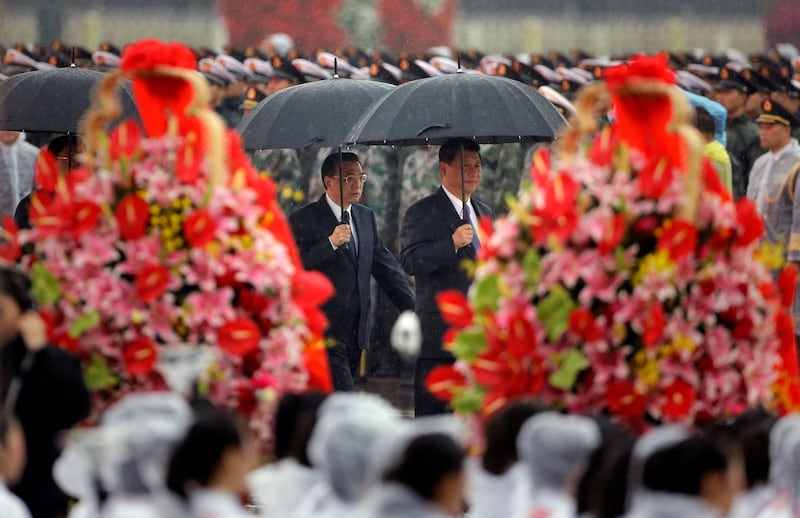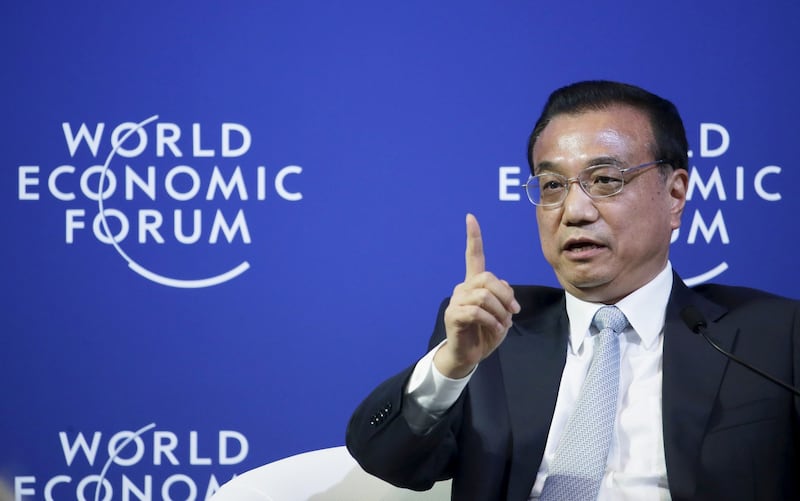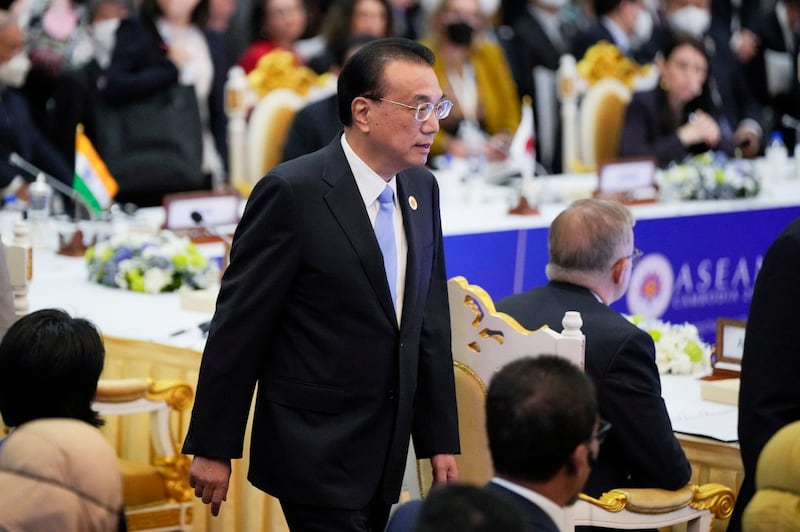Updated Oct. 27, 2023, 04:45 a.m. ET.
Former Chinese premier Li Keqiang died of a heart attack in the early hours of Friday morning in Shanghai, China’s state media reported.
“Comrade Li was resting in Shanghai in recent days, when he was seized by a sudden heart attack. He died in Shanghai on Oct. 27, 12:10 a.m. when all-out efforts to revive him failed. He was 68,” said the statement carried by Xinhua News Agency.
Li was believed to have arrived a day ago in Shanghai, and had checked into the Dong Jiao State Guest Hotel. He was swimming when he experienced the heart attack, according to Radio Free Asia's Mandarin service.
"We deeply mourn the tragic passing of Comrade Li Keqiang due to a sudden heart attack," China's foreign ministry spokesperson Mao Ning told a regular briefing, adding that an obituary would be published soon.
The former head of China’s State Council – or cabinet – who was charged with overseeing the Chinese economy, the world’s second-largest, was seen as being sidelined in recent years by President Xi Jinping who has expanded his control and power over a wider spectrum of the economy, society and military. Xi’s maneuvers came as he removed a previous two-year term ceiling for the role of president and embarked on his third term in 2022.

Under Xi’s tightened grip, the economy turned towards a statist direction, shifting the focus to elevate the status of state-owned enterprises, even though many are seen to be ailing and inefficient. Xi also cracked down on powerful tech giants like Alibaba Group and Tencent, as well as information-related sectors such as private education and after-school tutoring providers.
Li was premier and head of the State Council for 10 years until he stepped down in March.
Ian Chong, a political scientist from the National University of Singapore noted that Li’s departure from the premiership meant the exit of another prominent voice for economic reform and openness.
“That leaves the voices advancing a more inward looking economy in the halls of power in Zhongnanhai,” he said, referring to the entire Chinese central government and its leadership.

In fact, according to Alicia Garcia-Herrero, chief economist for Asia Pacific at French investment bank, Natixis, China’s reform progress and further opening up ended way before Li stepped down from the top echelon of power.
“I think it ended much earlier, and I would say that it was always a very asymmetric opening. So yes, it did open to some sectors even under [paramount leader] Deng Xiaoping, but never to all. It was a very cautious, opening and very cautious reform.”
That said, Garcia-Herrero pointed out that such a scenario was not uncommon and happens in other countries. The growth deceleration in China is partially a consequence of lack of reforms rather than the other way around.
“Secondly, part of that is just natural because China became richer and as you get richer, you tend to grow less. So I would say that Li Keqiang was indeed a reformist, but his influence on the government while he was there was not as large as I would have imagined.”
Reaction to Li’s death
Following the announcement of his death, Li’s previous comments of “what people are doing, the sky [or heaven] is watching, the sky has eyes!” were reposted and went viral again on Chinese social media.
A hashtag related to his death on Weibo, China’s equivalent of X, formerly Twitter, drew over 1 billion views in just a few hours. On posts about Li, the “like” button was turned into a daisy — a common flower for funerals in China, many users commented “rest in peace” and some said the news was “hard to believe.”
Netizens are also reminiscing about Li's economic policies, an indication which Hong Kong-based political analyst Johnny Lau described as a tool to use the past to take a stab at the present.
“Li had wanted to embark on many reforms but in hindsight, they ended up [delivering] ‘half the result for twice the effort’,” he said.
Lau said the initiatives included what foreign media dubbed Likonomics – Li’s economic policy that centered on no stimuli, deleveraging and structural reform to move an unbalanced economy towards sustainable growth.
They also included “street stall economy” to reinvigorate small entrepreneurship and create jobs after the-COVID pandemic. But Xi had publicly opposed lifting curbs against street vendors in Beijing. His opposition, albeit directed towards Beijing, would have ramifications nationwide given the current political climate.
U.S. Secretary of State Antony Blinken expressed his condolences on the passing of Li, said Matthew Miller, State Department spokesperson. Condolences also came from Japan’s embassy in China via its official account on Weibo. It said Li played an important role in the relations of both countries.
Li, a native of the eastern Anhui province, joined the Chinese Communist Party in 1976. He received his law degree from Peking University, as well as a Doctor of Economics degree.
He was a member of the Standing Committee of the Political Bureau of the 17th, 18th and 19th Communist Party of China central committees
He also served as party chief for Henan and Liaoning provinces before rising through the ranks to the central government.

In a press conference in March, Li said, "No matter how the international winds and clouds change, China will unswervingly expand its opening up.
“The Yangtze River and the Yellow River will not flow backwards.”
Edited by Mike Firn and Taejun Kang.
Updated to add comment from China's foreign ministry, analysts' insight and reactions from U.S. and Japanese governments, as well as online discussion of Li's policies .
